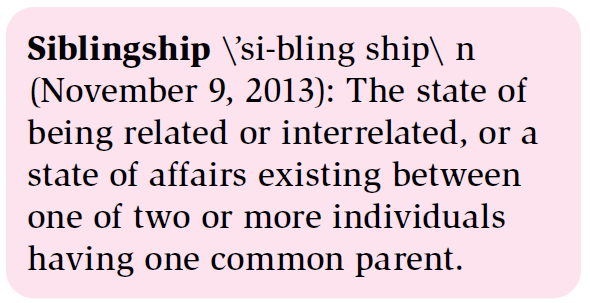Stephen B. Yim, Attorney at Law
-
Thank You
I cannot believe that the holidays are already upon us, so let me step back and take a moment to reflect and thank each of my clients for allowing me to be part of their life. Please know that each of you have had and continue to have a tremendous impact on my life. As…
-

Siblingship
Siblingship describes the unique relationship between siblings. Siblings begin their relationship at a young age, and if they are fortunate, they reach old age together. They experience joys and setbacks, they laugh and cry — and they fight. Through the fighting, they can learn conflict resolution. Spouses join us in our adult lives. Friends often…
